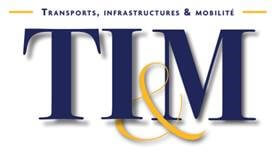How can we translate the idea of sufficiencyinto public transport policies? How do European countries adapt the idea of sufficiencyin strategies for orientation and behavior incentives?
This question asked to the OPSTE experts appeared simple and obvious to formulate because it followed on from the preparatory work in bulletin #6 « Decarbonizing transport, an essential goal » on the policy levers for the decarbonization of transports. In France, the term sobriété has become one of the most common language items from the expressions and debates generated by the challenge of the preparation of our public policies for carbon neutrality in 2050. This new overview of the OPSTE began by stressing another issue, which underscores the complex links between language, debate, and political decisions: the idea of sobriété in its French political meaning deployed over the past few months is not easy to translate, firstly in simply linguistic terms, then in terms of political orientations… neither in all languages, nor in each of the national areas covered by the OPSTE.
The term sobriété as used in France can certainly be considered the translation of the word sufficiency used by the experts of the IPCC, who write and publish in English. However, it seems that this part of the challenge of the ecological transition, which very directly questions the industrial processes and the choices of economic actors in the broad sense (public decision-makers, companies, households and individuals), also constitutes a political challenge marked by the histories, economic profiles, the organization of institutions, and the current concerns of each country.
The European Union, for its part, published orientations and legislation drafts intended to guarantee a reduction in energy consumption for all sectors taken together, in the meaning of sobriété generated by an energy efficiency effort of machines and modes of organization – which is called efficiency. But in terms of transports, the Commission is firstly deploying a transport service policy through the search for solutions favorable to modal transfer – for passengers and for merchandise. Following the publication of the Green Deal (December 2019), the publication of the Strategy for sustainable and intelligent mobility (*) underscores the need to decarbonize all modes. This is one of the issues of the Fit for 55 Packages (July 2021) and green mobility (December 2021). In its transport policy documents, the Commission almost never uses the term sufficiency.
Through this new edition of the OPSTE bulletin, prepared for a video meeting in October 2022, we can measure the importance of the words and ideas with which debates are carried out which prefigure the major national orientations of public transport policies. The collective use of English has not yet erased the nuances and the specificities of the political, social, and economic sensitivities of our various countries!
Consult or download bulletin #7:
- Sufficiency of transport systems : translations in Europe?
- Sobriété des transports : quelles traductions en Europe ?
(*) For a presentation and putting into perspective of the Strategy for Sustainable and Intelligent Mobility, you can consult the report of the webinar organized by TDIE & TI&M on January 26, 2021.


